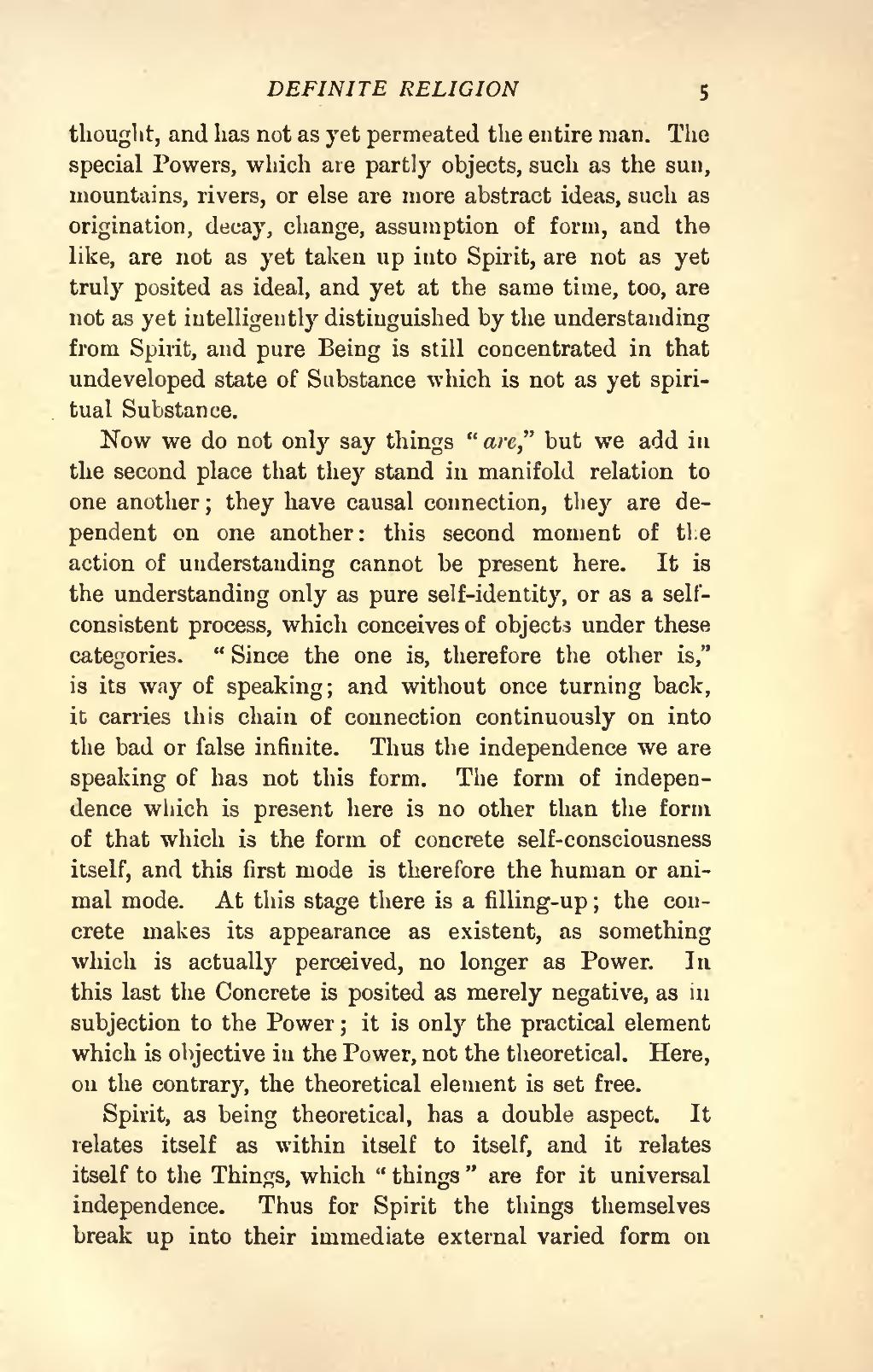thought, and has not as yet permeated the entire man. The special Powers, which are partly objects, such as the sun, mountains, rivers, or else are more abstract ideas, such as origination, decay, change, assumption of form, and the like, are not as yet taken up into Spirit, are not as yet truly posited as ideal, and yet at the same time, too, are not as yet intelligently distinguished by the understanding from Spirit, and pure Being is still concentrated in that undeveloped state of Substance which is not as yet spiritual Substance.
Now we do not only say things “are,” but we add in the second place that they stand in manifold relation to one another; they have causal connection, they are dependent on one another: this second moment of the action of understanding cannot be present here. It is the understanding only as pure self-identity, or as a self-consistent process, which conceives of objects under these categories. “Since the one is, therefore the other is,” is its way of speaking; and without once turning back, it carries this chain of connection continuously on into the bad or false infinite. Thus the independence we are speaking of has not this form. The form of independence which is present here is no other than the form of that which is the form of concrete self-consciousness itself, and this first mode is therefore the human or animal mode. At this stage there is a filling-up; the concrete makes its appearance as existent, as something which is actually perceived, no longer as Power. In this last the Concrete is posited as merely negative, as in subjection to the Power; it is only the practical element which is objective in the Power, not the theoretical. Here, on the contrary, the theoretical element is set free.
Spirit, as being theoretical, has a double aspect. It relates itself as within itself to itself, and it relates itself to the Things, which “things” are for it universal independence. Thus for Spirit the things themselves break up into their immediate external varied form on
